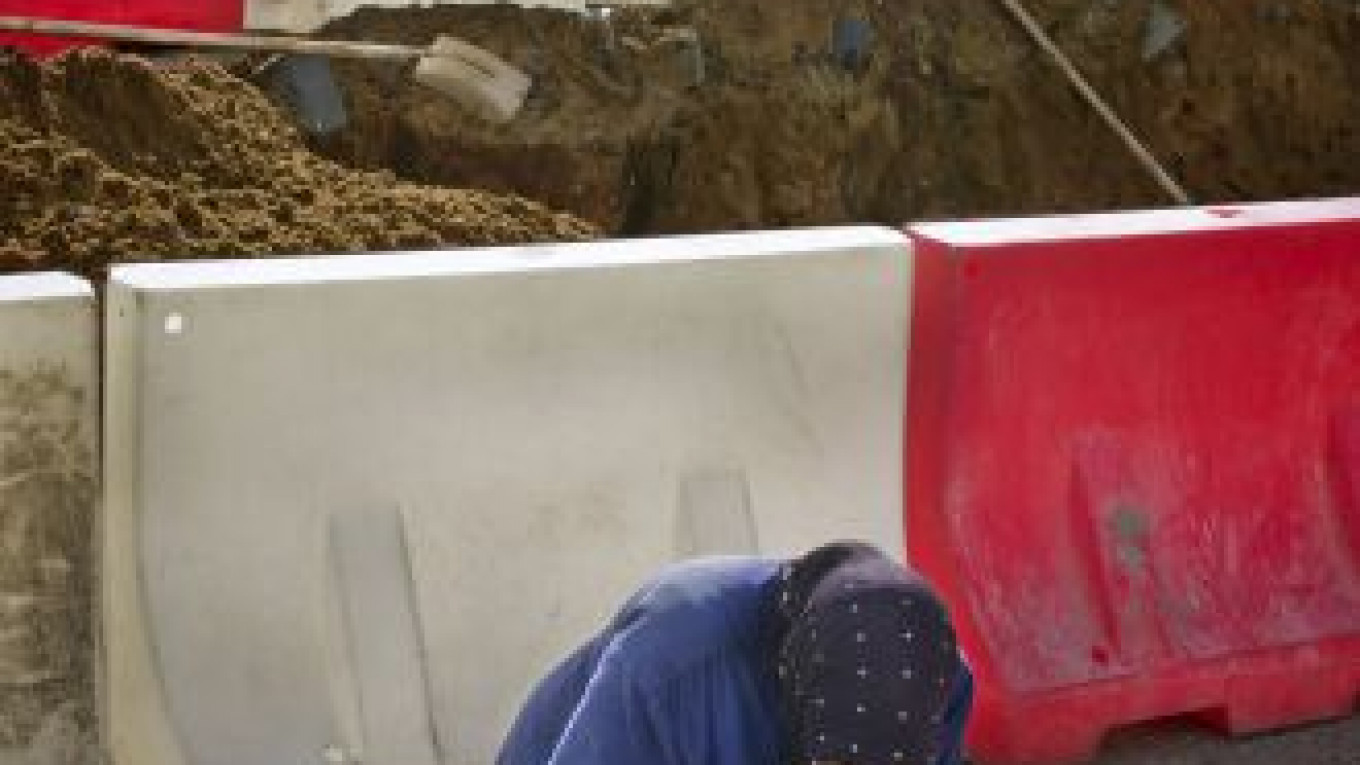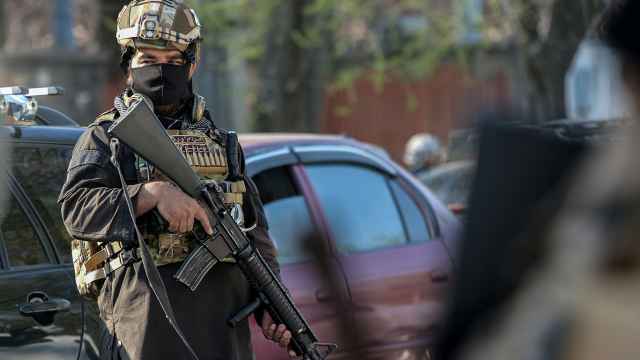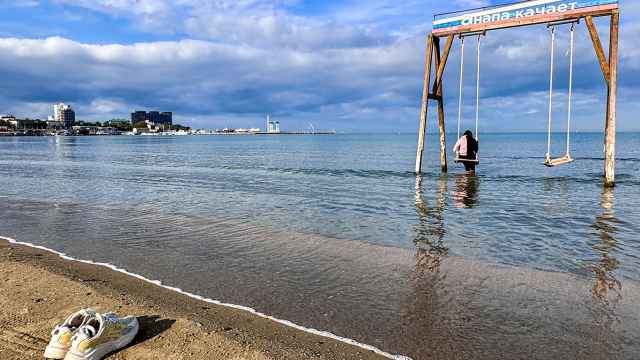The Society for Consumer Rights Protection on Monday dismissed charges of extremism as it steps up its campaign against retail trade at Christ the Savior Cathedral.
The dispute highlights the ongoing controversy swirling around the Russian Orthodox Church, whose officials have been accused of violating biblical restrictions on private property and trade while persecuting critics of its presumed wealth and power.
In a complaint, the Association of Orthodox Experts asked prosecutors to investigate the society for extremism and hate speech, Kirill Frolov, head of the association, said in his blog last week.
He added that he thinks the consumer rights group insults Christian believers and incites hatred between religious and social groups.
Speaking by phone, Mikhail Anshakov, head of the consumer group, called the Association of Orthodox Experts "nut cases" filing all kinds of absurd complaints with authorities. Anshakov said the accusations were the least of his worries.
The complaint followed a legal battle in which the consumer rights group argued that commercial activities at the cathedral violate consumer protection law.
In July, the Khamovniki Court ruled that transactions conducted at the cathedral were not sales but gift giving and that therefore consumer protection law did not apply to them.
Anshakov said the decision was "legal nonsense." The society appealed the court ruling and is willing to take the case all the way to the Supreme Court, he said.
To mock the ruling, the consumer rights group nominated Patriarch Kirill for the Nobel Prize for a breakthrough in economics, Rosbalt reported last week, citing an open letter sent by the group.
The group said Kirill had proved that the exchange of goods for money was a heretofore unknown form of transaction called a gift given at a recommended price.
The consumer group also said on its website last week that the Orthodox Church does not have any rights to most of the cathedral's territory.
Only 7 percent of the territory has been transferred to the church. The rest is owned by City Hall, and the church has no lease contracts or any other legal instruments for its use, Anshakov said.
The group said the Pussy Riot punk rockers' performance in February took place in a part of the cathedral to which the church does not have any rights, casting doubt on the prosecution's arguments in the criminal case against the group.
Anshakov said his organization is not seeking to ban religious rites on the land that does not belong to the church. He said the group would like the church to either legally acquire the land from City Hall or surrender it.
Anshakov added that he hoped "common sense" would finally triumph in Russian courts.
In July, the consumer rights group said commercial activities at Christ the Savior Cathedral included a parking lot, tire servicing, retail sales, a car wash and corporate events.
The society said consumer protection law was violated because there were no price tags or cash registers and goods sold could not be returned.
Related articles:
A Message from The Moscow Times:
Dear readers,
We are facing unprecedented challenges. Russia's Prosecutor General's Office has designated The Moscow Times as an "undesirable" organization, criminalizing our work and putting our staff at risk of prosecution. This follows our earlier unjust labeling as a "foreign agent."
These actions are direct attempts to silence independent journalism in Russia. The authorities claim our work "discredits the decisions of the Russian leadership." We see things differently: we strive to provide accurate, unbiased reporting on Russia.
We, the journalists of The Moscow Times, refuse to be silenced. But to continue our work, we need your help.
Your support, no matter how small, makes a world of difference. If you can, please support us monthly starting from just $2. It's quick to set up, and every contribution makes a significant impact.
By supporting The Moscow Times, you're defending open, independent journalism in the face of repression. Thank you for standing with us.
Remind me later.






